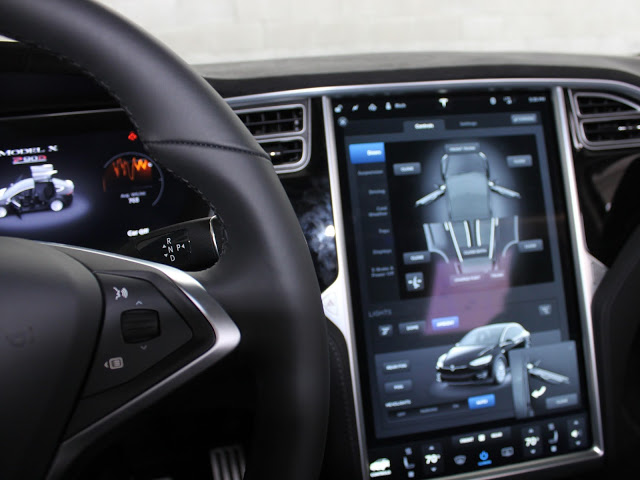Tesla has been aggressive in its use of technologies that are just emerging. The company’s use of software to control more features of its cars, over-the-air updates, and a giant touch-screen dashboard interface show how it is taking more risks than incumbents.
Normally a car’s features are set three years before it hits the market. And vehicles tend to have idiosyncratic, and not very intuitive, interfaces. The use of software and connectivity has made it possible for Tesla to repair issues remotely, and to update its cars with new features every few months. And while “beta” software updates sometimes include bugs, Tesla’s customers are apparently comfortable with this more cavalier approach.
Here is a link to Tesla motors 7.1 firmware update release notes
Brook Porter, a partner at the venture capital firm Kleiner Perkins Caufield and Byers who specializes in transportation, says Tesla’s product development approach, borrowed from the tech world, has been a key to its success. “I would say the most important driver behind Tesla’s disruption is its fundamental commitment to rapid iteration—thinking like software developers instead of commodity manufacturers,” Porter says.
“Over time, the data will undoubtedly be on the side of autonomous driving saving lives,” Porter says. “It’s important that regulators keep that goal in mind as they react to short-term technology rollout challenges.”
Traditional Automakers and recalls
In 2014 about 62 million U.S. vehicles were recalled. That’s the equivalent of about four years’ worth of cars sold in the USA, or about one out of every four cars on the road today. Automakers recalled 51.3 million vehicles in the United States in 2015, the second-highest ever, in 868 separate campaigns.
Several recalls made huge headlines, including those for defective ignition switches in General Motors cars that have been linked to at least
50124 deaths, and faulty Takata air bags, installed in Hondas and other brands, said to be responsible for at least
five13 deaths
So what’s going on? Have carmakers been asleep at the drawing board or on the assembly line? And will the recalls result in better practices and safer cars?
The answer to both questions is yes. Several big manufacturers have certainly made defective vehicles in the past and in some cases tried to cover it up. But the resulting publicity has turned a harsh spotlight on the problem and created an expectation of safer cars. Take a public that’s ready to complain—and often willing to sue—plus a more aggressive federal government and you end up with record-breaking recalls.

Brian Wang is a Futurist Thought Leader and a popular Science blogger with 1 million readers per month. His blog Nextbigfuture.com is ranked #1 Science News Blog. It covers many disruptive technology and trends including Space, Robotics, Artificial Intelligence, Medicine, Anti-aging Biotechnology, and Nanotechnology.
Known for identifying cutting edge technologies, he is currently a Co-Founder of a startup and fundraiser for high potential early-stage companies. He is the Head of Research for Allocations for deep technology investments and an Angel Investor at Space Angels.
A frequent speaker at corporations, he has been a TEDx speaker, a Singularity University speaker and guest at numerous interviews for radio and podcasts. He is open to public speaking and advising engagements.


